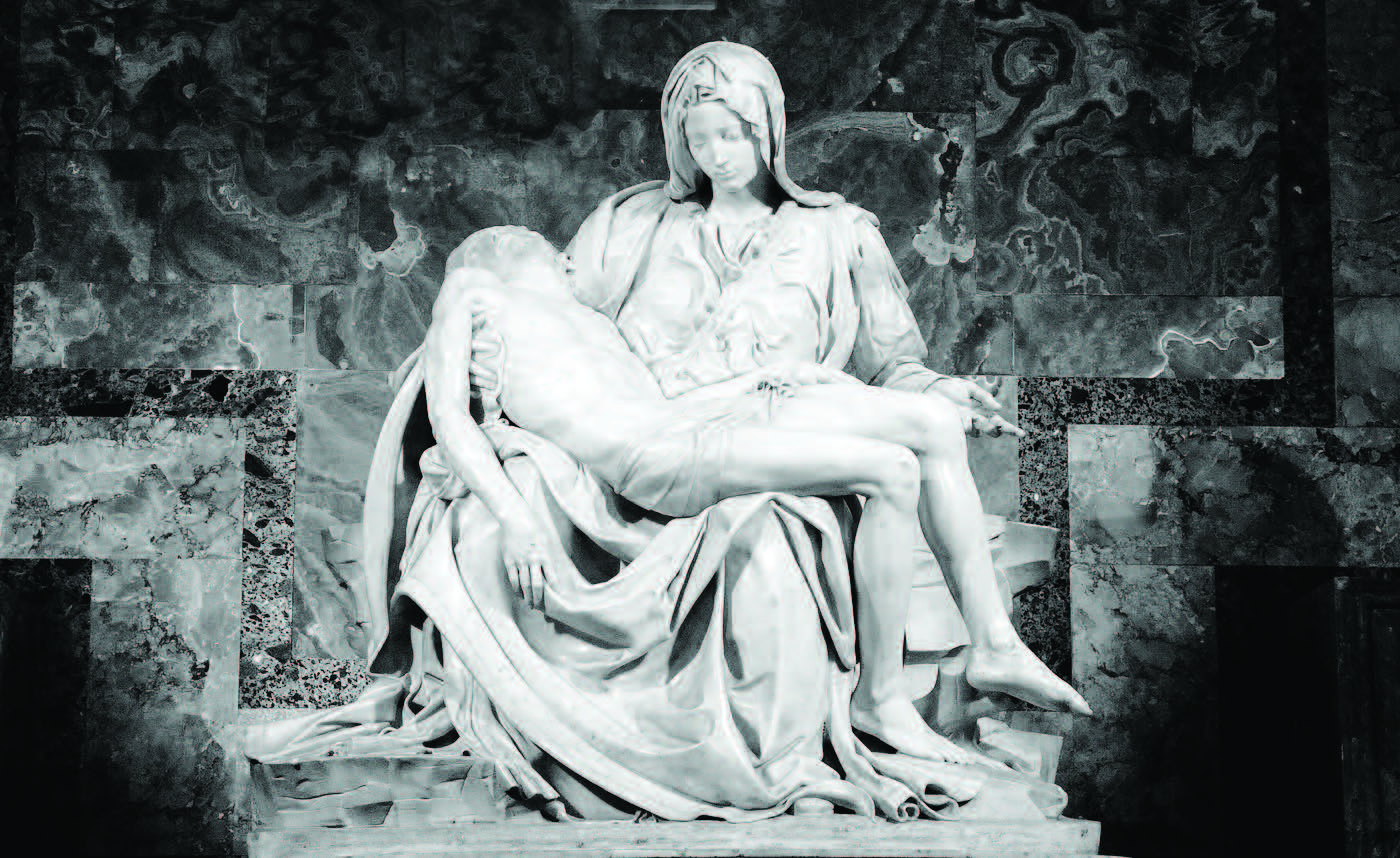In “The Agony and the Ecstasy,” Irving Stone’s biography of Michelangelo, the author noted that the renowned artist exhibited artistic ability long before he began his apprenticeships as a painter and sculptor.
One of his mentors recognized the remarkable talent of this protégée, but rather than complimenting the aspiring artist about his gift, he told him, “Talent is cheap; dedication is expensive; it can cost you your life.”
The young artist seemingly took the words to heart, for not only did he devote his life to his craft, he sacrificed his marriage and most of the enjoyments that were typically engaged in by his peers. Relentless in striving to recreate the beauty that surrounded him in nature and in the physicality of the human body, he also spent hours poring over Scripture.
According to Stone, Michelangelo rarely slept more than four hours a night, repeatedly skipped meals and even, after suffering a minor stroke at the age of 85, rose after a few hours of rest and continued sculpting the statue on which he had been working.
The artist understood that he had done nothing to merit the gift he was given, and so he never stopped offering it as a service to God and the Church. His dedication is no less remarkable than the works he produced, and offers much food for thought, especially during Lent when we are asked to focus on its three hallmarks: prayer, fasting and almsgiving.
The Catechism of the Catholic Church defines prayer as a gift, a covenant and communication. To pray is to respond to the deepest inclination of our being, for every prayer is a response to God whose greatest gift to us is himself.
The well-known prayer of St. Augustine, “You have made us for yourself O Lord, and our heart is restless until it rests in thee” speaks to the very reason we pray. It’s our way of acknowledging the human divine relationship that we have been gifted with though we did nothing to merit or deserve it. In taking to heart the words of Michelangelo’s mentor, we might ask our self:
What price am I willing to pay in order to develop my relationship with God?
What sacrifices am I willing to make?
Can we really expect to give up our life for God if we are unable to pass up a dessert, turn off our mobile device or bridle our tongue when we are tempted to make an unkind remark?
Lent is a time to take a spiritual inventory of how well we’re developing and sharing the gifts we have received. How well are we keeping the resolutions we made on Ash Wednesday? If you haven’t made any, there’s still time, for no matter how well we’re responding to our baptismal call to holiness, there’s always room for improvement.
In his book, “The Road Less Traveled,” M. Scott Peck opens his first chapter with the words, “Life is difficult.” His words are reminiscent of the psalmist who wrote, “The days of our life are 70 years, or perhaps 80, if we are strong; even then their span is only toil and trouble; they are soon gone, and we fly away” Ps 90:10.
Michelangelo lived to be 90 years old. None of us know how many years we have on this earth, which makes it imperative that we make the most of every day. God is patient with us, but there is often the human tendency to become presumptuous or complacent, which is why the Church provides a penitential season during the liturgical year.
On March 25, we will celebrate the Solemnity of the Annunciation, the moment when the Son of God became man. It is a day when the humility of God was on full display; when the God of the universe waited for the consent of a young girl to set the salvation of the world into motion. Jesus gave his life for us, and unworthy though we are, we are recipients of the gift of his unconditional love.
We’ve done nothing to earn it, but at the end of our life, we will all have to answer for the way we’ve used it. We’re not all called to be artists, but we are all called to become saints, and that takes a lifetime of dedication and re-evaluation.
May this Lent be a time of grace and recommitment to becoming the person that God is calling us to be, because life is too precious to waste.

